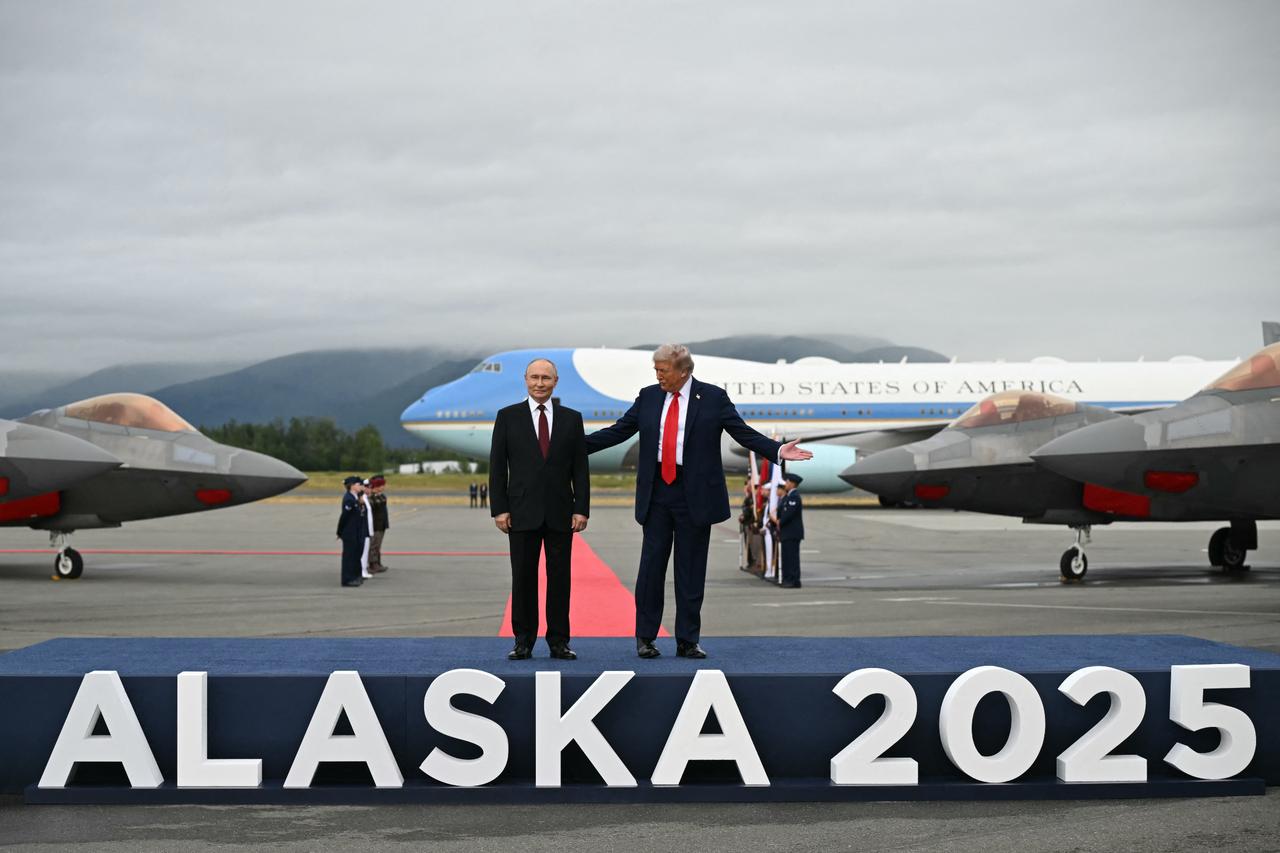
Ukrainian President Volodymyr Zelenskyy pressed the United States and its European allies on Monday for sweeping security guarantees as part of any deal to end Russia’s war against his country, telling President Donald Trump that Ukraine needs “everything” from weapons to long-term protection.
Meeting in the Oval Office, Zelenskyy said his country’s security would rest first on building “a strong Ukrainian army” through weapons sales and training, and second on what guarantees the U.S., NATO and the European Union could provide. “We can do security,” Zelenskyy said, noting that Ukraine would also need a “truce” across the battlefield, airspace and seas to allow elections to take place during wartime.
Trump, seated beside him, said he envisioned a “NATO-like” security presence in Ukraine but stopped short of pledging U.S. troops. “They want to give protection and they feel very strongly about it and we’ll help them out with that,” Trump said. “I think it’s very important to get the deal done.”

While promising Ukraine continued backing, Trump avoided ruling out or committing to sending American troops, saying the decision would be considered with European partners. “We’ll let you know that, maybe, later today,” Trump said. “We’re meeting with seven great leaders of great countries, also, and we’ll be talking about that. When it comes to security, there’s going to be a lot of help.”
Trump’s envoy, Steve Witkoff, has floated the idea of NATO-style guarantees, underscoring that the matter was central to Monday’s discussions. The European leaders in Washington for the talks included NATO Secretary-General Mark Rutte, European Commission President Ursula von der Leyen, British Prime Minister Keir Starmer, French President Emmanuel Macron, German Chancellor Friedrich Merz, Italian Premier Giorgia Meloni and Finnish President Alexander Stubb.
Vice President JD Vance, who in February called Zelenskyy “disrespectful” for clashing with Trump in public, made no comments during Monday’s meeting. Sitting alongside Secretary of State Marco Rubio, he watched as Trump and Zelenskyy addressed reporters.

The Washington summit followed Trump’s meeting with Russian President Vladimir Putin in Alaska on Friday, where the two leaders held lengthy talks on ending the war. On Monday, Trump said Putin was “expecting my call” after his meetings with Zelenskyy and European officials.
Asked whether U.S. support for Ukraine was nearing an end if no agreement emerged, Trump rejected the suggestion. “People are being killed and we want to stop that. So I would not say it’s the end of the road,” he said, adding there was a “good chance” of progress. “I know the president, I know myself, and I believe Vladimir Putin wants to see it end.”
Zelenskyy signaled he was open to joining Trump and Putin for a three-way negotiation. “We are ready for trilateral,” he said, framing such a meeting as a possible path to ending the conflict.

The White House prepared carefully for Zelenskyy’s visit, lining the driveway with a military honor guard and positioning large American and Ukrainian flags at the entrance. As his motorcade pulled up, bystanders cheered, and Trump greeted him with a handshake at the West Wing door, raising his fist to the crowd. Asked about his message for Ukrainians, Trump said, “we love them.”
The greeting contrasted with the spectacle in Alaska days earlier, where Trump and Putin strode down dueling red carpets before departing together in Trump’s limousine. Both encounters underscored Trump’s unusual position as host to the leaders of two nations locked in a bitter war.
Inside the Oval Office, a moment of levity came when conservative reporter Brian Glenn, who once criticized Zelenskyy for appearing in casual clothing, complimented his formal attire. “You look fabulous in that suit,” Glenn said, prompting Trump to interject, “I said the same thing.” Laughter filled the room as Zelenskyy responded, “I remember that,” recalling the earlier exchange.
But tensions flared when Trump pivoted to elections, teasing the Ukrainian leader about the challenges of voting during wartime. “So let me just say three and a half years from now — so you mean, if we happen to be in a war with somebody, no more elections, oh, I wonder what the fake news would say,” Trump quipped. Zelenskyy replied soberly that safe elections would require a nationwide truce and security across land, air and sea.

Despite the high-level attention, the summit left critical questions unresolved: whether Ukraine would receive formal guarantees, what role U.S. troops might play, and how soon trilateral talks with Russia might be convened. Trump said only that European leaders were eager to provide protection and that the United States would “participate.”
For Zelenskyy, the stakes remain existential. His government continues to insist that without durable guarantees from Washington and Brussels, any agreement with Moscow would leave Ukraine vulnerable. As the day of meetings with Trump and European leaders unfolded, the Ukrainian president repeated his central demand: “We need everything.”